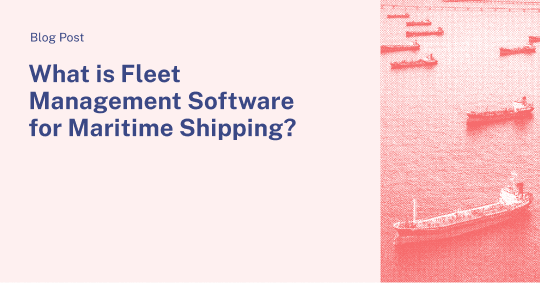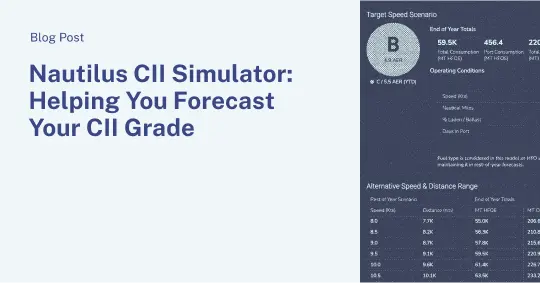Last week, Nautilus Labs joined an incredible array of technologists, environmentalists, designers, VC firms, and maritime publications for SeaAhead’s inaugural Global Bluetech Summit—in Brooklyn.
Bluetech has emerged as the quintessential rallypoint for protecting our planet’s oceans; and it involves those who study and explore marine life, create sustainable food systems, connect transnational efforts, architect commercial vessels, support clean energy, and map the deepest and darkest places on Earth.
“How inappropriate to call this planet Earth when it is quite clearly Ocean.”
Arthur C. Clarke
As an artificial intelligence startup for maritime shipping, we were a proud sponsor of the event. It’s both in our DNA and mission statement to help shipping companies in their quest as stewards of the seas—through responsible (and profitable) voyage and commercial decision-making.
Our CEO, Matt Heider, participated in an on-stage panel: Transforming the Shipping Industry—shepherded by gCaptain’s John Konrad, and joined by Vesa Koivumaa of Wärtsilä, Tero Hottinen of Cargotec, and Matt Morgan of FreightFlows. While the panelists represented different aspects of the backbone of the global economy, the conversation (fittingly) focused on collaboration, smarter integrations across shipping companies, access to actionable technologies, and the opportunities in bluetech, at-large.
And out the gate, panelists homed in on efficiency in maritime commerce.
In his introduction, Matt Heider noted, “Our focus is on driving down fuel consumption in maritime shipping. The industry today is unsustainable. That’s true of vessels. And that’s true across the supply chain. Our service is focused on reducing fuel consumption and process leaks, because we need to change—as an industry—and it’s incumbent upon everyone in this room to drive that change.”
When it comes to entrepreneurs (including us), Matt also mentioned the urgency in creating sustainability for the benefits of our clients’ business growth, too.
“Ultimately, there will be no fuel reduction, there will be no efficiency, if shipping companies don’t see the benefit to their bottom line. So it’s about partnering closely, understanding their [our clients’] needs and building solutions that create the most value.”
A growing area where owner/operators are looking for new value is liquefied natural gas (LNG).
“Among our current client base, we serve fleets of LNG ships. Some of those ships are powered solely by LNG as a fuel source, or utilize dual-fuel modes. I think there’s a very bright future for LNG—it’s a bridge to a carbon-free future with wind propulsion, various forms of solar power, battery-based power. But it requires investment and focused development of technologies across the board; it requires a focus on operational excellence—actually having the data and analysis to inform your decision.”
“What we see inside companies is often the silos between teams.
“Technical teams, operations teams, commercial teams don’t have the transparency they need—meanwhile data transparency is the key to the future at the local level and the corporate level.”
As with any industry—and especially those that are long-term focused, like shipping—the people behind technological advancements are essential to forward movement.
gCaptain’s John Konrad asked Matt Heider what attracts talent to maritime via Bluetech.
“Bluetech is the biggest opportunity to impact the environment inside technology today. If you’re a really smart engineer or salesperson or marketer, would you rather go sell a dog-walking app or would you rather be part of the change that could potentially save the planet? In bluetech that opportunity is massive. And it affects all of us, every day—the next generation and the generation after that.
“If we don’t take accountability for what’s happening in the oceans, we’re going to be in a very difficult place.”
SeaAhead closed with an evening reception aboard Peace Boat, a Japan-based international NGO focused on peace, human rights, and sustainability—featuring presentations by The Explorers Club, the United Nations Division for Ocean Affairs and the Law of the Sea (DOALOS), and UN-Nippon Foundation among others.
A special thank you to: SeaAhead, Peace Boat, gCaptain, Wartsila, Cargotec, and FreightFlows


